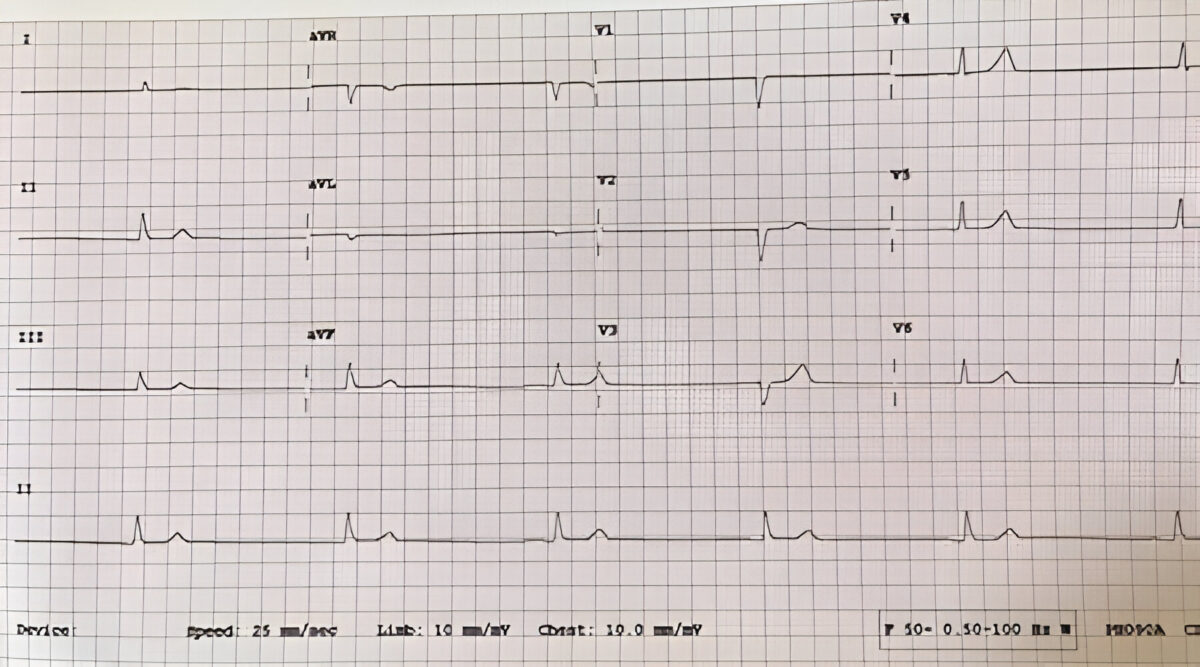The human heart beats tirelessly, but with a certain rhythm. When the rhythm is slower than the typical heart rate, it can indicate an underlying health issue. Sinus Bradycardia is one such condition that can lead to excessively slow heart beats. According to the National Library Of Medicine, every 1 in 5 people in the US have sinus bradycardia. This condition doesn’t impact an individual’s lifestyle, unless it is the result of other underlying diseases.
To decide if it’s a concern or simply a benign difference in heart rhythm, it is important to get yourself checked. If you are experiencing some symptoms or simply wish to understand about this condition, you have come to the right place. Let’s discover everything you need to know about sinus bradycardia.
Master ACLS Now
Get ACLS certified with confidence
What are the causes of Sinus Bradycardia?
Sinus Bradycardia is the result of a malfunctioning sinoatrial node, sending out electrical signals at a slower than normal rate. The sinoatrial node is the natural pacemaker of the heart. This can happen for several reasons. Understanding the causes will help you determine if the slower heart rate is harmless or due to an underlying issue.
- Physical Fitness: Highly trained athletes often have lower resting heart rates due to their enhanced cardiovascular efficiency.
- Aging: The SA node may function less efficiently as part of the natural aging process.
- Medications: Certain drugs, such as beta-blockers, calcium channel blockers, and some antiarrhythmic medications, can slow down the heart rate.
- Hypothyroidism: Low levels of thyroid hormones can reduce heart rate.
- Electrolyte Imbalances: Abnormal levels of electrolytes, particularly potassium and calcium, can affect the heart’s electrical activity.
- Sleep Apnea: Breathing interruptions during sleep can lead to intermittent bradycardia.
- Heart Disease: Conditions like ischemic heart disease, myocardial infarction, and cardiomyopathy can impact the SA node’s function.
- Inflammatory Conditions: Diseases such as myocarditis and pericarditis can affect heart rhythm.
- Autonomic Nervous System Disorders: Issues with the nervous system that controls involuntary bodily functions can influence heart rate.
- Congenital Heart Conditions: Some individuals are born with heart defects that can result in bradycardia.
- Toxins and Substance Abuse: Exposure to toxins or the use of substances like alcohol and drugs can lead to a slower heart rate.
Read More: ACLS Drugs For Bradycardia
What Are The Symptoms Of Sinus Bradycardia?
To treat sinus bradycardia, it is important to be well aware of the symptoms. However, sinus bradycardia can be completely asymptomatic as well. But the signs exhibited by sinus bradycardia can impact daily life and demand immediate attention. Recognize the symptoms for timely diagnosis and management.
- Fatigue: Persistent tiredness and lack of energy.
- Dizziness or Lightheadedness: Feeling faint or unsteady, particularly when standing up quickly.
- Syncope (Fainting): Temporary loss of consciousness due to inadequate blood flow to the brain.
- Shortness of Breath: Difficulty breathing, especially during physical activity.
- Chest Pain: Discomfort or pain in the chest, which can be alarming and require immediate attention.
- Palpitations: Awareness of the heart beating slowly or irregularly.
- Exercise Intolerance: Inability to engage in physical activities without experiencing fatigue or other symptoms.
- Confusion or Memory Problems: Difficulty concentrating or experiencing memory lapses due to reduced blood flow to the brain.
- Cold Extremities: Hands and feet may feel cold due to poor circulation.
- Reduced Blood Pressure: Lower than normal blood pressure readings, which can increase symptoms like dizziness and fainting.
Read More: Effects Of Illegal Drugs On the Heart
How To Treat Sinus Bradycardia?
The treatment of sinus bradycardia depends on the frequency and severity of the symptoms. Even in cases where there are no symptoms, it is important to get checked. The right treatment includes lifestyle modifications and medications mostly.
- Monitoring and Observation: Regular check-ups and monitoring of heart rate and symptoms, especially if the bradycardia is not causing significant issues.
- Addressing Underlying Conditions: Treating conditions such as hypothyroidism or sleep apnea that might be contributing to the slow heart rate.
- Medication Adjustments: Reviewing and potentially altering the dosage or type of medications that could be causing bradycardia, under a doctor’s supervision.
- Lifestyle Changes: Adopting a healthier lifestyle, including regular exercise, a balanced diet, and avoiding excessive alcohol and drugs.
- Pacemaker: In cases where bradycardia is symptomatic and not responsive to other treatments, implanting a pacemaker can help regulate the heart rate.
- Treatment of Electrolyte Imbalances: Correcting levels of potassium, calcium, and other electrolytes through diet or supplements.
- Managing Heart Disease: Treating any underlying heart disease with medications, lifestyle changes, or surgical interventions as recommended by a cardiologist.
- Avoiding Triggers: Identifying and avoiding substances or activities that can increase bradycardia, such as certain medications or intense physical exertion without proper conditioning.
- Counseling and Support: For conditions related to stress or autonomic nervous system disorders, psychological support and counseling may be beneficial.
Conclusion
The treatment of sinus bradycardia involves a comprehensive approach. However the treatment plan has to be well aligned with the individual patient needs. Based on the severity of the situation, patients can be advised a pacemaker implantation or simple lifestyle changes.
By understanding and addressing the root cases, individuals with sinus bradycardia can lead healthy, fulfilling lives.







